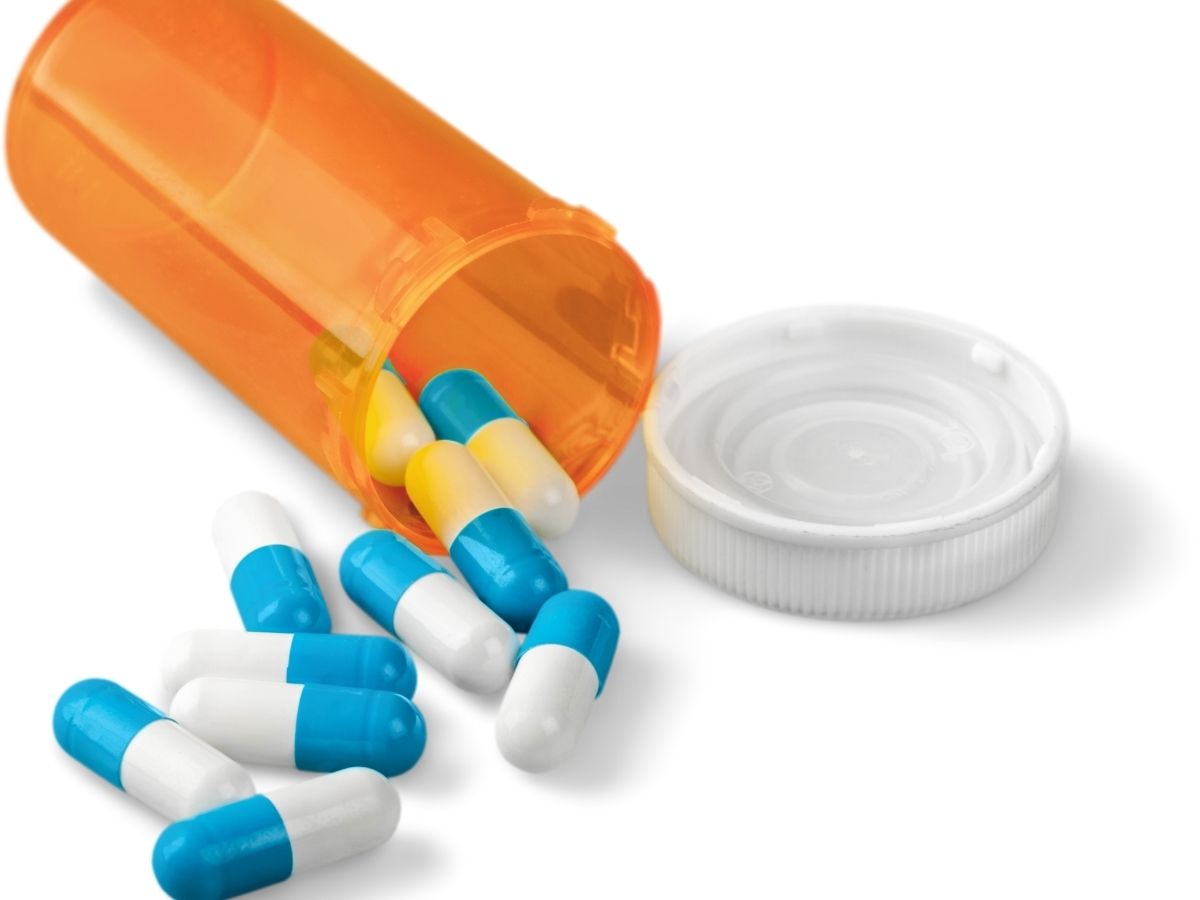
Fentanyl addiction is now one of the most serious public health problems in the United States. There is hope if you or a loved one is battling this potent substance. The first step toward recovery may be to comprehend the dangers of fentanyl, how it functions, and the various treatment choices.
Skip To
Table of Contents
What Is Fentanyl?
In medicine, fentanyl, a synthetic opioid, is used to treat extreme pain. It is far more potent than other prescription opioids like oxycodone or morphine (up to 100 times stronger). While its medical use is closely monitored, illicitly manufactured fentanyl is a major contributor to drug-related deaths across the country.
So, is fentanyl an opioid? Yes. It is one of the drugs that works by blocking the brain’s opioid receptors to ease pain. But when abused or mixed into illegal drugs, its effects can be life-threatening.
Why Is Fentanyl So Dangerous?
What makes fentanyl especially dangerous is how it is distributed outside medical settings. Many people use it unknowingly. Drug dealers often mix fentanyl into heroin, cocaine, methamphetamine, and counterfeit pills because it’s cheap and easy to manufacture. Just a tiny dose can cause fentanyl overdoses, especially if someone has no tolerance for opioids.
Illicitly manufactured fentanyl is now the leading cause of overdose deaths in the U.S., often hidden in substances people think are something else.
End the Emotional Pain. Get Your Life Back.
Feeling Depressed, Anxious or Struggling with Mental Health Illness? Get Safe Comfortable Mental Health Dual Diagnosis High-Quality Therapy From Counselors That Care. Begin Your Recovery Now.
Hotline: (509) 348-4077

Fentanyl Addiction Signs and Symptoms
Fentanyl addiction doesn’t look the same in everyone. Fentanyl addiction symptoms range from using prescription fentanyl legally or from exposure through street drugs. Either way, the outcome can be devastating.
Physical Symptoms of Fentanyl Use
- Slowed breathing
- Drowsiness or extreme sedation
- Nausea and vomiting
- Confusion or dizziness
- Small, constricted pupils
- Difficulty staying awake
Behavioral and Emotional Signs
- Doctor shopping for extra prescriptions
- Lying or stealing to obtain drugs
- Isolating from family members and friends
- Losing interest in responsibilities or hobbies
- Mood swings, anxiety, or depression
Recognizing fentanyl addiction signs early can prevent tragedy. If you notice these behaviors in yourself or someone you love, it’s time to take action.
What Happens During Fentanyl Withdrawal?
When your body becomes dependent on fentanyl, stopping suddenly can trigger withdrawal. It’s intense, painful, and often discourages people from quitting on their own. In the period of 12 to 30 hours, symptoms can last a week or longer.
Common Withdrawal Symptoms of Fentanyl
- Muscle and joint pain
- Nausea, vomiting, or diarrhea
- Sweating and chills
- Runny nose and watery eyes
- Yawning and fatigue
- Rapid heartbeat and high blood pressure
- Restlessness and insomnia
- Strong cravings
Medically supervised detox is frequently the safest and most efficient way to start recovery because withdrawal can be so overwhelming.
Get Help. Get Better. Get Your Life Back.
Searching for Accredited Dual Diagnosis Mental Health Centers Near You?
Even if therapy failed previously, or are in the middle of a difficult crisis, we stand ready to support you. Our trusted behavioral health specialists will not give up on you. When you feel ready or just want someone to speak to about counseling alternatives to change your life call us. Even if we cannot assist you, we will lead you to wherever you can get support. There is no obligation. Call our hotline today.
FREE 24/7 Dual Diagnosis Mental Health Services HotlineHow Do You Respond to a Fentanyl Overdose?
You must take immediate action if you believe someone is overdosing on fentanyl. In just a few minutes, this could become fatal.
Signs of Fentanyl Overdose
- Shallow or stopped breathing
- Cold, clammy skin
- Blue or gray lips and fingertips
- Unconsciousness or inability to wake
- Gurgling or choking sounds
If you witness these symptoms, call 911 immediately and administer naloxone (Narcan) if available. One drug that can momentarily counteract the effects of fentanyl and other opioids is naloxone. It is safe for onlookers to use and comes in nasal sprays and injectable versions.
The effects of fentanyl can resurface after naloxone wears off, so even if someone appears to recover after a dose, they should still need emergency medical attention.

Starting the Recovery Process: Detox and Rehab
It takes more than willpower to overcome a fentanyl addiction. Physical detoxification, mental health services, and ongoing support for addiction treatment are all necessary components of a methodical, compassionate treatment program.
Medical Detoxification
The first step is medical detoxification. Medical professionals provide emotional support, prevent complications, and manage withdrawal symptoms under round-the-clock supervision. The groundwork for recovery is laid during this stage.
Programs for Rehab from Fentanyl
Many people find that a residential or outpatient fentanyl rehab program helps them after detox. These programs offer coping mechanisms for long-term recovery while addressing the underlying causes of addiction.
Therapy Types
Cognitive behavioral therapy (CBT), motivational interviewing, and contingency management are all examples of behavioral therapy. Family therapy Aids in the healing process and creates a nurturing atmosphere at home.
Support for Mental Health
Deals with co-occurring conditions like sadness or anxiety.
Medication-Assisted Treatment (MAT)
Reduces cravings and facilitates withdrawal by using drugs like methadone or buprenorphine.
Aftercare Planning
Offers enduring tools such as peer support, relapse prevention techniques, and sober living.
Comfortable Facilities & Amenities
High-Quality Mental Health Services & Behaviroal Health Substance Abuse Treatment
Rehab Centers TourRenowned Mental Health Centers. Serene Private Facilities. Inpatient Rehab Programs Vary.
Mental Health Helpline: (509) 348-4077Proven recovery success experience, backed by a Team w/ History of:
15+
Years of Unified Experience
100s
5-Star Reviews Across Our Centers
10K
Recovery Success Stories Across Our Network
- Low Patient to Therapist Ratio
- Comprehensive Dual-Diagnosis Treatment
- Complimentary Family & Alumni Programs
- Coaching, Recovery & Development Events
- Comfortable Onsite Medical Detox Center
Understanding the Link Between Fentanyl and Substance Use Disorder
Substance use disorder, a chronic condition in which the brain becomes dependent on a substance, includes fentanyl addiction. Like other forms of substance abuse, fentanyl addiction rewires the brain’s reward system, making it difficult to stop without help.
The good news? Substance use disorder is treatable. Recovery is possible with the right support system and care.
Where to Get Help in Spokane Valley, Washington
If you’re in Spokane Valley or the surrounding area and need help with fentanyl addiction, We Level Up Washington offers comprehensive, compassionate care tailored to your needs.

Frequently Asked Questions (FAQs)
-
Where in Spokane Valley, Washington, can you find treatment for fentanyl addiction?
You can find trusted, professional care at We Level Up Washington, offering detox, inpatient, and outpatient services for fentanyl addiction and co-occurring disorders.
-
Where in Coeur d’Alene or Post Falls can you find treatment for fentanyl addiction?
If you live near Coeur d’Alene or Post Falls, We Level Up Washington is nearby and ready to help. Our facility in Spokane Valley welcomes individuals from across the Inland Northwest.
-
Which level of care is available at We Level Up Washington?
We offer a full range of care, ranging from residential treatment to medical detox and relapse prevention. Our professional teams will build a personalized treatment plan to help you recover from this addiction.
Start the Healing Process
It can be daunting to take the first step, whether you’re looking for help for someone you care about or for yourself. However, an addiction to fentanyl need not take over your life. The risks of overdosing, long-term harm, and lost potential increase with the length of time it remains untreated.
At We Level Up Washington, our teams fully comprehend the crucial phase of recovery and therefore commit themselves to helping you regain your life. Every call is private, every story is respected, and every person deserves a chance to heal.
Call now. Your path to recovery starts here.
World-class, Accredited, 5-Star Reviewed, Effective Mental Health Dual Diagnosis Programs. Complete Integrated Inpatient Rehab with Free Post Discharge Therapy Planning.
Hotline: (509) 348-4077End the Emotional Pain Rollercoaster. Gain Stability & Happiness Through Recovery Treatment. Start Mental Health Counseling Today. Get Free No-obligation Guidance by Behaviroal Health Specialists Who Understand Mental Health Recovery.
Summary
Call today to speak with our team and learn more about our programs. We Level Up Washington: (509) 348-4077. Your next step starts here.

